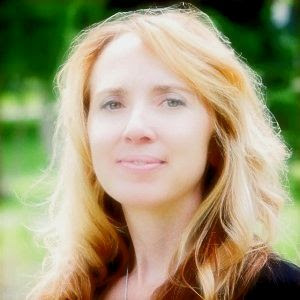
For delegates, casting ballots brings honor, joy, relief
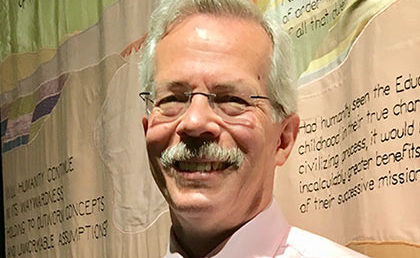
The hour was early. The sky was clear. The sun was warm and bright. The Saturday morning election of the National Spiritual Assembly of the Baha’is of the United States started with 20 minutes of prayers and choir music in the Auditorium of the Baha’i House of Worship in Wilmette, Illinois. It was the third day of the 110th Baha’i National Convention.
Delegates then took their seats in Foundation Hall, in the Temple’s lower level. The announced voting instructions were both practical and inspirational. Excerpts from Baha’i scripture were read that emphasized the solemnity, responsibility and spiritual significance of the voting.
Except for the rustling of paper ballots, scritch-scratching of pencils and sealing of envelopes, the room was silent for the next 18 minutes. The hall’s singular acoustics made these tiny sounds seem like light raindrops falling.
Each delegate was called up in alphabetical order to place their envelopes in the Lucite box at center stage. Some kissed the envelope before dropping it in the box.
When the convention secretary announced that all 171 delegates had voted, they gave one another a standing ovation. Then the group spontaneously began singing “Allah-u-Abha,” meaning “God is Glorious.”
There were 35 delegates who cast ballots for the first time. They were 20 percent of the 171 who represent localities across the country.
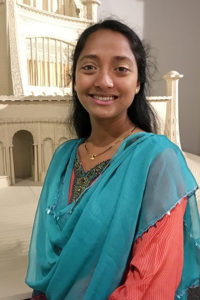 One of these first-timers was Swati Shevate Justice from Greensboro, North Carolina. She was brought up in Mumbai and has lived for eight years in Greensboro, where she serves on her Local Spiritual Assembly. She was visibly moved both during and after the election.
One of these first-timers was Swati Shevate Justice from Greensboro, North Carolina. She was brought up in Mumbai and has lived for eight years in Greensboro, where she serves on her Local Spiritual Assembly. She was visibly moved both during and after the election.
“I feel so overwhelmed to be given this honor,” she said. “I am so humbled.”
Ten years ago Shevate Justice served as an usher during an election of the Universal House of Justice, the international governing body of the Faith, at the Baha’i World Center in Haifa, Israel.
“At that time I thought if anybody needed a proof of the truth of the Faith they need to witness this,” she said of welcoming delegates from all over the world. Through tears, Justice said that today’s voting took her back to that emotional time and gathering at the World Center.
“This balloting, this voting, was no less special than the International Convention. It had the same kind of power, the same kind of impact. It was very special.”
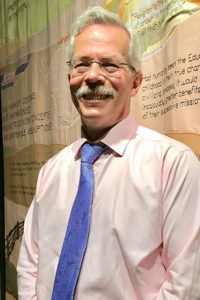 The process was not all solemnity, though. As Joel Nizin of Richwood, New Jersey submitted his ballot, the delegates emitted a round of laughter. Nizin explains:
The process was not all solemnity, though. As Joel Nizin of Richwood, New Jersey submitted his ballot, the delegates emitted a round of laughter. Nizin explains:
“I’ve been a delegate now 28 times. Historically there was a green metal voting box, and when it came to my name — I’m usually the 110th or 120th out of the 171 — that box, which was much smaller, would get full and I would have to shake it to get my ballot in the box. Now that they’ve switched to this clear plastic box, I still shake it. Everybody expects me to do it.”
Even after 28 years of attending the National Convention, Nizin says it’s an honor to be here. “It is so wonderful to be part of the consultation, to meet these incredible Baha’is who live throughout the United States and to have the honor of electing my National Spiritual Assembly.”
Nizin started preparing for the National Convention in October right after he was elected to be a delegate through his local unit convention. “I spend the next six months thinking about what my delegate report will look like, talking with people and visiting. It’s really a year-long activity; it’s not just a few days or a few weeks.”
“I usually have a list of 15 or 20 people I think I want to vote for, I subtract, I add, I keep winnowing it down, usually within a day or two before the election, I get to my final nine,” Nizin said. Other delegates intentionally avoid considering specific names until the inspiration and the actual moment of voting comes.
Delegates have the freedom to vote for any Baha’i residing in the United States who is 21 or older. The Baha’i writings encourage them to select “those who can best combine the necessary qualities of unquestioned loyalty, of selfless devotion, of a well-trained mind, of recognized ability and mature experience.” Delegates make efforts to become familiar with Baha’is active in local, regional and national community efforts.
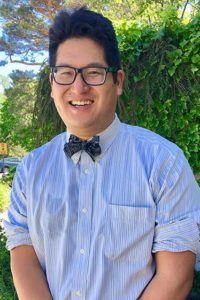 Greg Hatayama, another first-time delegate, from Denver, was impressed by the gathering itself.
Greg Hatayama, another first-time delegate, from Denver, was impressed by the gathering itself.
“It is so cool to see how strong the Baha’i community is across the country. From the big cities to the rural clusters, it sounds amazing that we’ve progressed so far,” Hatayama said.
This was not the first time he had been in a large gathering of Baha’is. “I went to a winter school in Kuala Lumpur that had a thousand people in it. That was amazing.” In 2013 Hatayama also traveled to Portland, Oregon, for one of a series of youth conferences sponsored by the Universal House of Justice.
How did he feel after the voting? “I feel a little bit of relief, actually. There was a lot of tension and thought. Just a lot of the weightiness of the task was difficult to sustain for the last few days.”
A past delegate from a nearby area had prepped him for what to expect of the voting. “I felt fairly ready for the process,” Hatayama said. “He even informed me that Joel was going to shake the box!”




